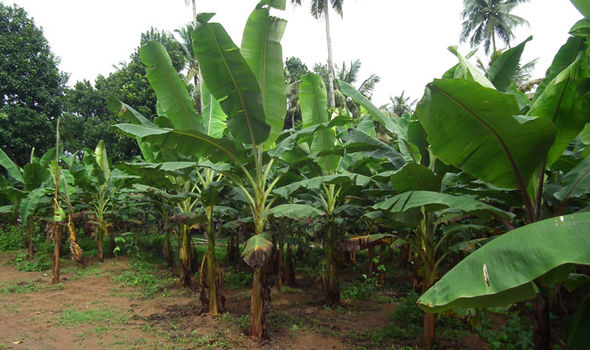A group of 600 former employees of the Multiple Services Cooperative of Puerto Armuelles, RL (Coosemupar) who, at the time of its dissolution, had a status of unpaid leave, retirement, pension, and renouncement, are demanding that the Government of Panama gives them a hectare of land each.
The former employees, who are now members of the Association of Producers and Industrialists of Baru (Asprobaru), are making this demand because they were not taken into consideration by the census conducted by the National Land Authority when the government distributed 2,400 hectares of land among other former employees in 2012.
Alexander Rueda Vigil, the president of Asprobaru who worked for six years in Coosemupar, said that the government had determined that they would give a hectare of land to each former employee, but they didn’t specify the status of the workers. “The company still owes us 84 employer Social Security labor quotas, in addition to the contributions that we gave as partners, among other issues that make us former employees of the banana company,” he said.
Rueda Vigil, who quit the Coosemupara a few months before the settlement was made by the Panamanian Autonomous Cooperative Institute (IPACOOP) in 2010, said that their former colleagues “criticized us at first, because they thought we were a group of people that wanted to exploit the situation, until they understood our struggle and realized we were their peers and even their old bosses.”
“Asprobaru is made up of 238 former administrative employees and field laborers and 402 other former employees. It was created in 2014 when we received the legal status,” said Rueda Vigil in an interview in La Estrella de Panama.
Rueda Vigil was accompanied by Johnny Martinez Villamonte, who worked for Coosemupar for eight years and was on an unpaid leave at the time of Ipacoop’s settlement, to manage the Micro, Small and Medium Enterprises Authority’s regional in Chiriqui.
According to Martinez Villamonte, “Asprobaru has allowed us to unite and speak out as former employees. It would be fair if they take us into consideration and give us a hectare of land, because we continue working it, but only for subsistence.”
The lands to which the representatives of Asprobaru refer are located in the village of Rodolfo Aguilar, and they are not related to the projected contract/law between Panama and the Del Monte multinational, which is expected to be presented to the National Assembly during the first quarter of 2017.
“What we ask for is fair because we are former employees. We are also working so that the families of the former employees that have died in these years will also benefit,” said Martinez Villamonte.
Coosemupar had 7,000 hectares, distributed in five districts: Baco, Progreso, Rodolfo Aguilar, Puerto Armuelles, and Limones. 2,400 of these hectares were distributed to former employees in 2012.
If the government complied with Asprobaru’s request, they would still have about 4,000 hectares available for auction. The Association of Producers of Panama (Aprodepa) opposes this because they have worked the land for more than fifteen years and have submitted self-financing productive projects to various administrations and authorities to acquire the lands at a fair price.
Several groups have coveted the lands that were once part of Coosemupar, including businessmen, politicians, former employees, and independent producers.
